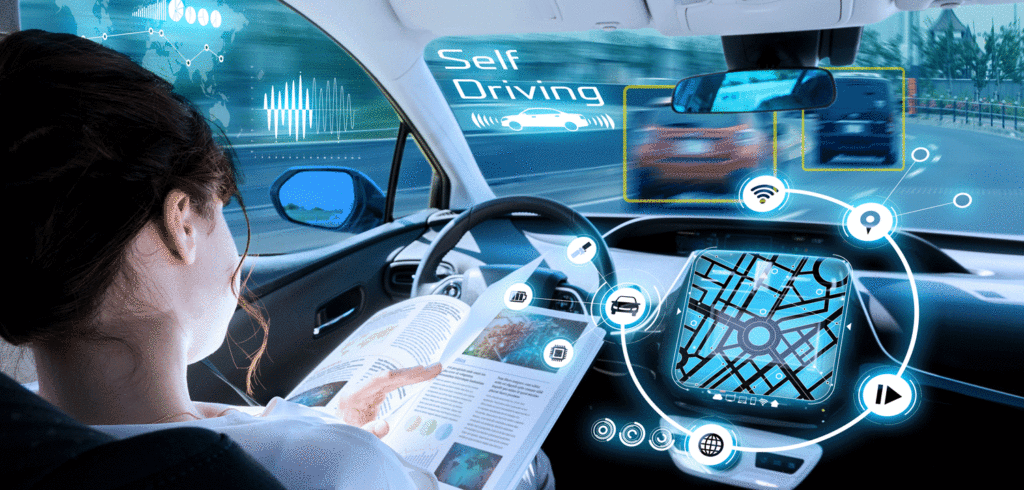A new study from the Capgemini Research Institute has found that consumer preference for riding in self-driving cars is set to double within the next five years.
According to the study, in 12 months’ time, only 25% of consumers would prefer to ride in a self-driving car rather than a traditional vehicle, but over half (52%) expect driverless cars will be their preferred mode of transportation by 2024.
The positive response from consumers suggests that they see huge benefits with autonomous vehicles in terms of fuel efficiency (73%), reduced emissions (71%) and saving time (50%). Over half of those surveyed (56%) said they would be willing to pay up to 20% more for an autonomous vehicle over a standard one.
Capgemini’s findings also point to a changing perception of mobility, as consumers expect autonomous cars to take on a larger role in their daily lives. Almost half (49%) of respondents said that they would be comfortable with self-driving cars running an errand on their behalf; more than half (54%) would trust an autonomous vehicle to drop off or pick up non-driving friends and family members, while one in two (50%) expect self-driving cars to help them save time to pursue other activities – such as socializing, entertainment, working, or simply enjoying the journey.
It is clear that consumers are anticipating an autonomous future, with even cultural and geographic factors driving higher anticipation for autonomous cars. Capgemini has identified two groups that are especially positive toward autonomous cars – Chinese consumers and millennials.
However, despite the surge in positive consumer sentiment, excitement and anticipation, barriers to adoption remain, with respondents saying that purchase or adoption of a driverless vehicle is dependent on vehicle security (73%) and system security (72%).
Markus Winkler, global head of automotive at Capgemini, said: “Our report shows a high level of optimism and excitement among potential autonomous vehicle users. Most conversation to date has focused on the technological evolution of driverless cars, so it’s hugely encouraging to see the potential benefits that the technology enables resonating with future passengers.
“A degree of uncertainty remains, however, and auto companies must consider the expectations and fears of future customers, while transforming their own operations from a heavy product focus to services and customer orientation, as they bring autonomous vehicles to the market.”
Capgemini has identified four key areas of focus to accelerate the journey toward an autonomous future: keeping the customer informed; understanding and reassuring consumers; building an ecosystem of services; and investing in software.
The Capgemini Research Institute conducted a survey of 5,538 consumers across six countries in Europe, North America and Asia in December 2018. It also surveyed 280 executives from OEMs, suppliers and tech companies. Interviews were conducted with industry leaders, examining what consumers want from self-driving cars and how organizations can give it to them. The new findings form part of Capgemini Research Institute’s report The Autonomous Car: A Consumer Perspective.


